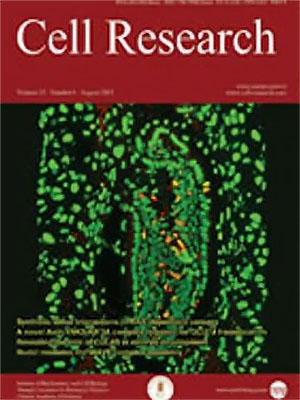
Volume 15, No 4, Apr 2005
ISSN: 1001-0602
EISSN: 1748-7838 2018
impact factor 17.848*
(Clarivate Analytics, 2019)
Volume 15 Issue 4, April 2005: 262-271
REVIEWS
Epigenetic changes in virus-associated human cancers
Hsin Pai LI1, Yu Wei LEU2,Yu Sun CHANG1*
1Graduate Institute of Basic Medical Sciences, Chang Gung University, Kwei-shan, Taoyuan, Taiwan 333.
2Department of Life Science and Institute of Molecular Biology, ChungCheng University, Ming-Hsiung, Chia-Yi, Taiwan 621.
Correspondence: Yu Sun CHANG(ysc@mail.cgu.edu.tw)
Epigenetics of human cancer becomes an area of emerging research direction due to a growing understanding of specific epigenetic pathways and rapid development of detection technologies. Aberrant promoter hypermethylation is a prevalent phenonmena in human cancers. Tumor suppressor genes are often hypermethylated due to the increased activity or deregulation of DNMTs. Increasing evidence also reveals that viral genes are one of the key players in regulating DNA methylation. In this review, we will focus on hypermethylation and tumor suppressor gene silencing and the signal pathways that are involved, particularly in cancers closely associated with the hepatitis B virus, simian virus 40 (SV40), and Epstein-Barr virus. In addition, we will discuss current technologies for genome-wide detection of epigenetically regulated targets, which allow for systematic DNA hypermethylation analysis. The study of epigenetic changes should provide a global view of gene profile in cancer, and epigenetic markers could be used for early detection, prognosis, and therapy of cancer.
FULL TEXT | PDF
Browse 2136


